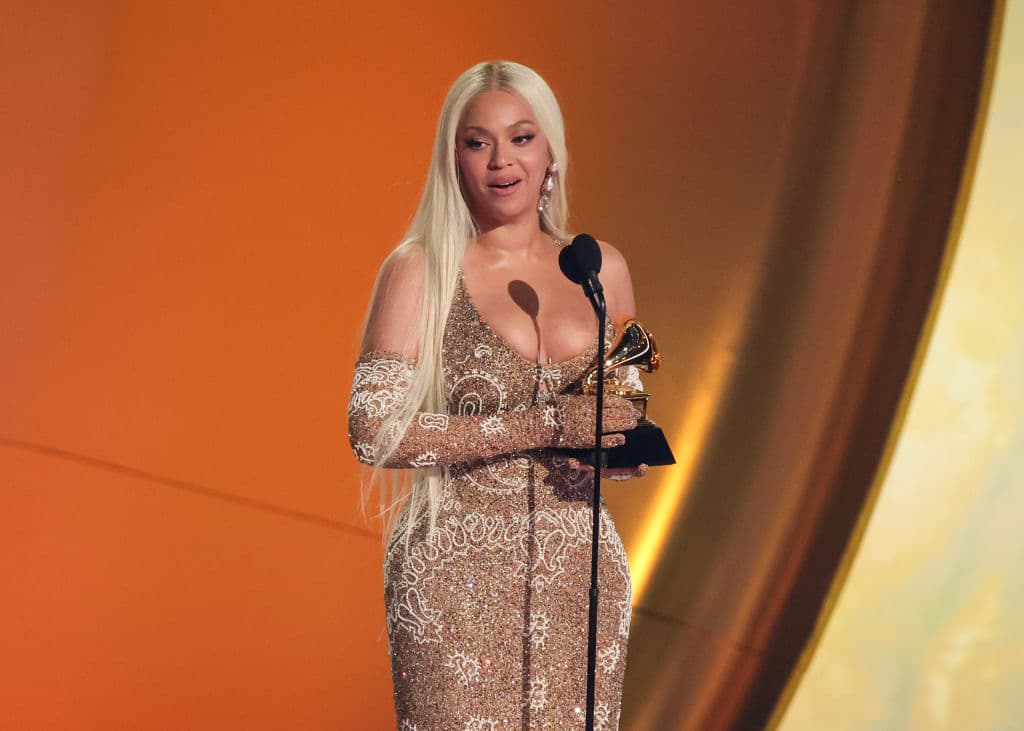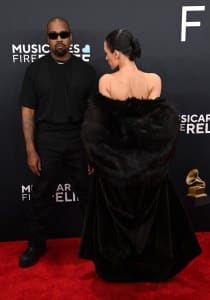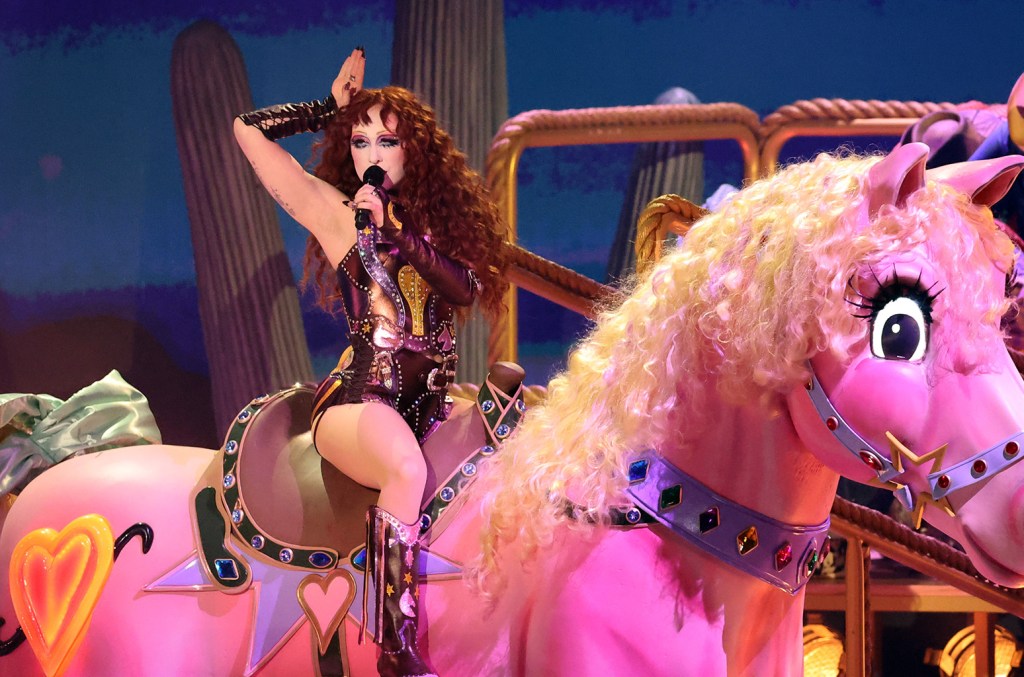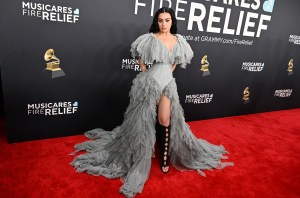Grammys
Page: 12
HipHopWired Featured Video
Source: Christopher Polk / Getty
Beyoncé won Best Country Album for Cowboy Carter at the 2025 Grammy Awards, there is a glimmer of hope for the year. Low bar, we know.
While her husband Jay-Z and her daughter Blue Ivy looked on from their seats, Bey went on stage and accepted her award from Taylor Swift, who introduced the categoy.
“Wow, I really was not expecting this,” she said, before adding, “I want to thank God.”
Cowboy Carter beat out projects from Post Malone, who appears on the album, Kacey Musgraves, Chris Stapleton and Lainey Wilson.
Bey is the most nominated artist at the Grammys with 11 nominations, four of them in the Country category (including Best Country Song (“Texas Hold ‘Em”), Best Country Solo Performance (“16 Carriages”) and Best Country Duo/Group Performance (“II Most Wanted,” with Miley Cyrus). Earlier in the evening, she won in the aforementioned Best Country Duo/Group Performance cagtegory.
“I just want to encourage people to do what they’re passionate about,” Beyoncé said during her Best Country Album speech. Yeah, this is a Hip-Hop website, but real recognize real.
https://x.com/RecordingAcad/status/1886234199201640551
The dress worn by Ye‘s wife, Bianca Censori, on the 2025 Grammys red carpet left little to the imagination. Ye says the design, which appeared to be so sheer that it was effectively transparent on camera, was couture. Ye opted to post about the outfit on Instagram on Sunday night (Feb. 2) during the Grammy […]
Chappell Roan – who received six nominations at the 2025 Grammy Awards – hit the stage on Sunday (Feb. 2) night to perform “Pink Pony Club,” one of the most memorable, impactful songs from her smash album The Rise and Fall of a Midwest Princess. Fittingly, Roan started the performance on a giant pink pony, […]
The 2025 Grammy Awards broadcast is giving back to the local Los Angeles community ravaged by the devastating L.A. County wildfires. Host Trevor Noah revealed during his opening monologue on Sunday (Feb. 2) that the broadcast will be donating airtime to help amplify small businesses that were impacted by the wildfires. The first featured Orla […]
Rising hip-hop star Doechii picked up her first career Grammy on Sunday night (Feb. 2) with an emotional win for best rap album, for her breakthrough mixtape Alligator Bites Never Heal. Explore Explore See latest videos, charts and news See latest videos, charts and news The set beat out a handful of longtime superstars in […]
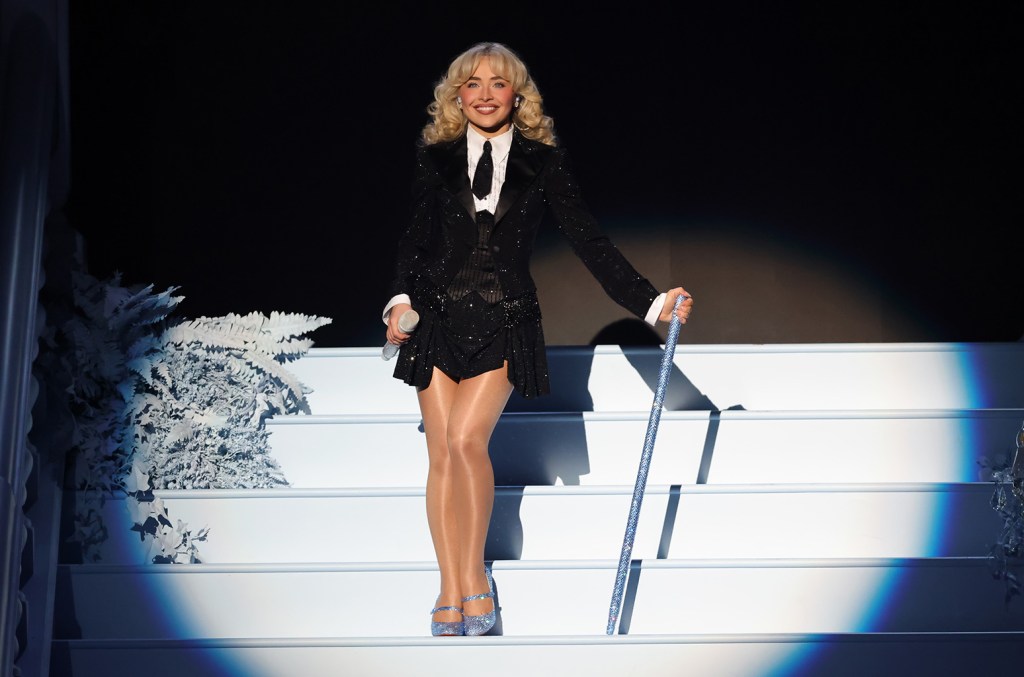
After picking up her first career Grammy during the premiere ceremony for best pop solo performance (“Espresso”), Sabrina Carpenter shut down the stage at the 67th Annual Grammy Awards on Sunday night (Feb. 2). After a brief video segment chronicling her career-shifting 2024 — including pivotal moments such as her viral live debut of “Espresso” […]
HipHopWired Featured Video
Source: JC Olivera / Getty
And the winner is…Doechii. On Saturday, February 2, the MC sensation out of Tampa won Best Rap Album for her proper debut, Alligator Bites Never Heal, at the 2025 Grammy Awards in Los Angeles.
Doechii accepted her award by noting that two women before had won in the category, Lauryn Hill and Cardi B. It was the latter who present her with the award.
From the stage, she dedicated the win to her sobriety and “God told me he would reward me and show me just how good it can get.”
The “Denial Is A River” rapper also thanked TDE and her mother, show she brought up on stage and made sure to big up her Tampa roots.
Doechii won in a hyper-competitive field that included projects from J. Cole, Eminem, Common & Pete Rock and Future & Metro Boomin.
Hip-Hop is in great hands with Doechii.
Before Sunday’s (Feb. 2) prime-time Grammy Awards, the night’s biggest honorees gathered on a star-studded red carpet, and Billboard has rounded up the best photos from the night. Sabrina Carpenter — who is already a winner, thanks to her best pop solo performance win for “Espresso” at the Grammy Premiere Ceremony — hit the red […]
Kendrick Lamar is a 20-time Grammy Award winner, and he could be adding more to that tally later Sunday night (Feb. 2). Lamar’s “Not Like Us” won in the best rap song, best rap performance and best music video categories during the 2025 Grammy Premiere Ceremony ahead of Sunday night’s prime-time telecast. With his 20th […]
Beyoncé was officially awarded her first country Grammy at the 2025 pre-ceremony on Sunday (Feb. 2). It’s her first time to be honored with a win in a country category by the Recording Academy. Beyoncé’s “II Most Wanted” featuring Miley Cyrus, from Bey’s Cowboy Carter album, was named the best country duo/group performance winner on […]

 State Champ Radio
State Champ Radio 